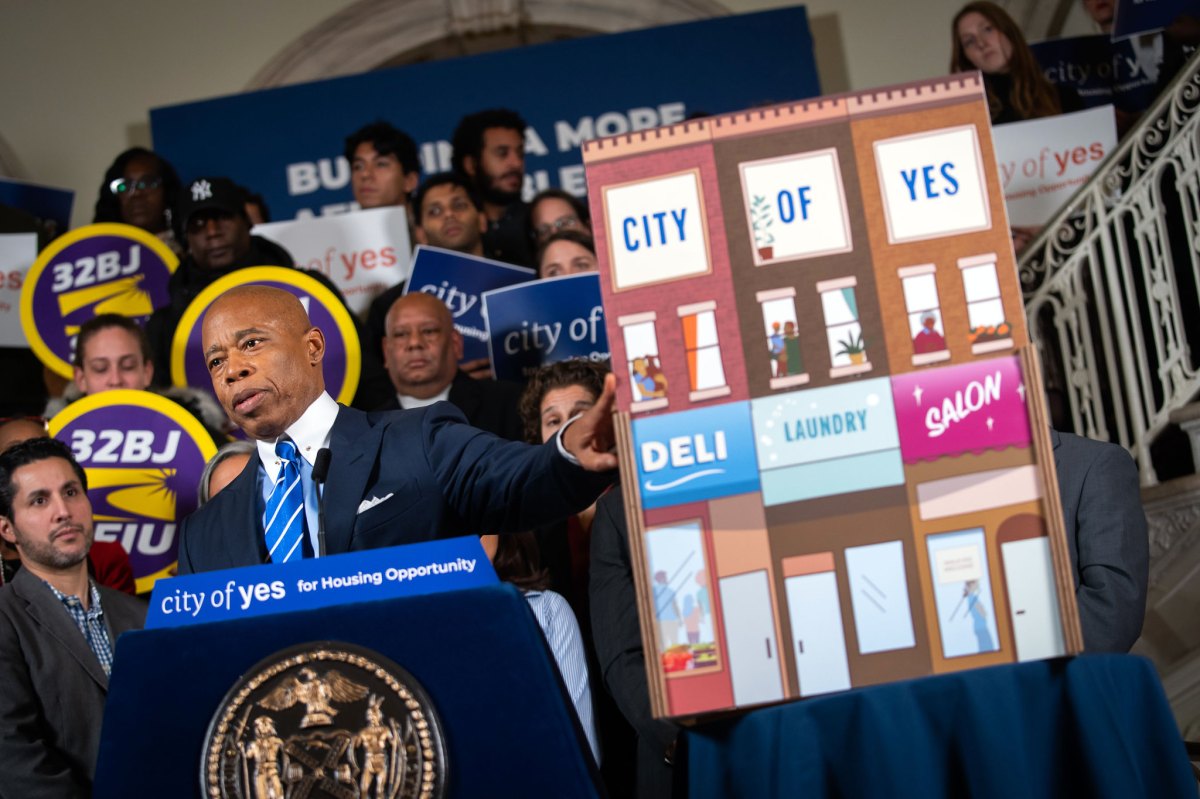
The Catholic Church announced plans Monday to develop between 1,500 and 2,000 units of below-market-rate housing in New York City over the next decade as it celebrated a new housing complex in Morrisania.
Cardinal Timothy Dolan formally unveiled St. Augustine Terrace, at 1180 Fulton Ave. in the Bronx, by clanging a replica of a bell that had accompanied the church that previously stood on the property. The original, worn bell sat nearby.
The site’s transformation into apartments for 112 low-income families is emblematic of the push by Catholic Charities of the Archdiocese of New York to significantly ramp up its contributions, which Dolan noted are part of the church’s duty to care for the poor. The city is currently suffering an affordability crisis.
“For us in the church, this is a no-brainer,” Dolan said as he presided over the unveiling. “It’s a duty — it’s something we are obliged to do.”
The archdiocese has developed over 2,000 units of housing in the city since the 1970s, but is looking now to dramatically increase that output. It may even surpass 2,000 units in ten years “if the land-zoning gods are nice to us,” said Kevin Sullivan, executive director of Catholic Charities of the archdiocese.
In addition to St. Augustine Terrace, the church has four projects underway in the Bronx and one planned in Manhattan, at Grand Street Guild. Each of those developments, which will collectively include 1,145 units, is in either the design or early construction phase.
St. Augustine Terrace’s units, which are rented out through the city Department of Housing Preservation and Development’s lottery, include a $718-a-month studio available to a couple making between $27,085 and $38,200 a year, to a $1,004-a -month three-bedroom unit available for families earning between $37,749 and $42,950 a year. The building will use 35 units as supportive homes for adults with serious mental illness.
“These are homes for New Yorkers who may otherwise have to leave the city, live in unsafe conditions, or go into the shelter system,” said Molly Park, HPD’s deputy commissioner for development, who noted the importance of landowners like the Catholic Church pitching in as the city runs low on land to develop on.
“We depend on creative uses of sites like this one to continue to grow the development of affordable housing in New York City,” Park said.































